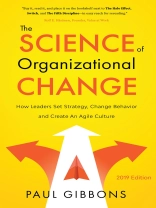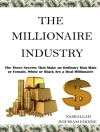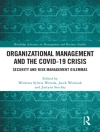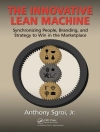‘The best book on change I’ve ever read…’ (Bank CEO)
‘The best book on change in fifteen years, perhaps longer…’ (Organization Development consultant)
Leaders need guidance on leading change grounded in the latest science, not 20th-century myths. In this updated 2019 edition of The Science of Organizational Change, Paul takes us on a journey from change mythology, from New Age change ideas, from ‘reports in drawers’, and from pop psychology up to the present.
In the first comprehensive treatment of behavioral science in business, you’ll learn which cognitive biases caused the 2008 Financial Crisis, Enron, and the Deepwater Horizon. Later in the book, you’ll discover how evidence-based management is helping leading businesses including Google.
The author’s 30-year career, scholarly approach, but without dry academic writing make this book a must-read for all managers interested in change. Few authors incorporate findings from psychology, sociology, medicine, philosophy of science, ethics, public policy, economics, and mathematics into books on change. Fewer still do it in an interesting way.
Read case studies from Cisco, Intel, Nokia, BP, Shell, Barclays, British Airways, Comcast, and Pw C – all former clients of the author where he advised at C-suite level.
สารบัญ
Introduction / 3
Reports in drawers
New Age change management
Science and spirituality?
Proof in complex systems
Models – useful or science-based?
CHAPTER 1
Failed Change: The Greatest Preventable Cost to Business? / 27
Myths and facts on change failure
“Everything flows” – constant change
Changing people and the human sciences
Change management or change leadership
CHAPTER 2
From Change Fragility to Change-Agility / 57
Antifragility
Systemic, integral change model
Agile people “growers not knowers”
Agile cultures
Agile organization structures
Agile processes for learning and innovation
CHAPTER 3
Governance and the Psychology of Risk / 103
Where math meets people is what matters
The planning fallacy and game theory
Black swans and decision making under uncertainty
Project risk management
Cascading and correlating risks
CHAPTER 4
Decision Making in VUCA Environments / 139
Complicated or complex systems?
Decisions in complex systems – Cynefin
Decisions in complex systems – Systems thinking
The human side of analytics
From a deluge of data to wisdom
CHAPTER 5
Cognitive Biases and Failed Strategies / 167
What do biases cost?
Perception biases
Hubris and self-justification
Problem solving biases
Solution finding biases
Leading like a lemming
Trust your gut, or trust the model?
What makes “all of us smarter than one of us?”
CHAPTER 6
Misunderstanding Human Behavior / 217
The buzz-kill of mythbusting
Folk psychology and “commonsense”
Popularity a proxy for expertise
Pop leadership – no substitute for thinking
Is psychology a science yet?
Neuroscience, useful, hype, or fad?
CHAPTER 7
The Science of Changing Behaviors / 255
Black boxes and change?
Punished by rewards?
The limits of persuasion and education
A simple checklist saves millions
Zero tolerance and behavioral modeling
From change manager to nudger
How do you change habits?
Can training change behaviors?
CHAPTER 8
The Science of Changing Hearts and Minds / 299
Influencing and resistance
Trust – the resistance-slayer
Involvement and wicked messes
Can using facts backfire?
MINDSPACE and behavioral science
Mindfulness in business and leadership development
CHAPTER 9
Leading with Science / 349
Leadership – a science-based craft?
Bad science costs money
Science, anti-science, pseudoscience
Stamping out anti-science
The scientific mindset
Evidence-based management
Positivism, Taylorism, and scientism
Leadership, reason, and science
เกี่ยวกับผู้แต่ง
Paul Gibbons has a 40-year career straddling international
business and academia. His research and writing explore how philosophy and science can be used to enlighten contemporary business thinking, debunk myths and pseudoscience, and solve practical business
problems, including changing culture, developing leaders, and
using analytics and evidence to make strategic decisions. Paul’s academic background, starting in math, then in economics, neuroscience, psychology, and philosophy, allows him to bring perspectives to business not typically found in traditional business books.
His consulting career, mostly in Europe, included founding an award-winning ‘teal’ Organization Development consulting firm, Future Considerations. Paul has coached dozens of CEOs – on strategy, change, and talent issues. His change experience includes clients such as Comcast, Shell, Pw C, BP, Barclays, KPMG, British Airways, HSBC, Nokia, The Body Shop, Comcast, the NHS, and UK Ministers. He was the
change management lead on a $1 billion program for the
UK’s Department of Work and Pensions.
Paul has appeared in Microsoft’s Distinguished Author Program and at Google and appeared in the Wall Street Journal and the Financial Times. He is a Fellow of the Royal Society of Arts.
He now writes, hosts the award-winning Think Bigger Think Better philosophy podcast, plays competitive poker, chess, and bridge, and raises two boys in Colorado.












